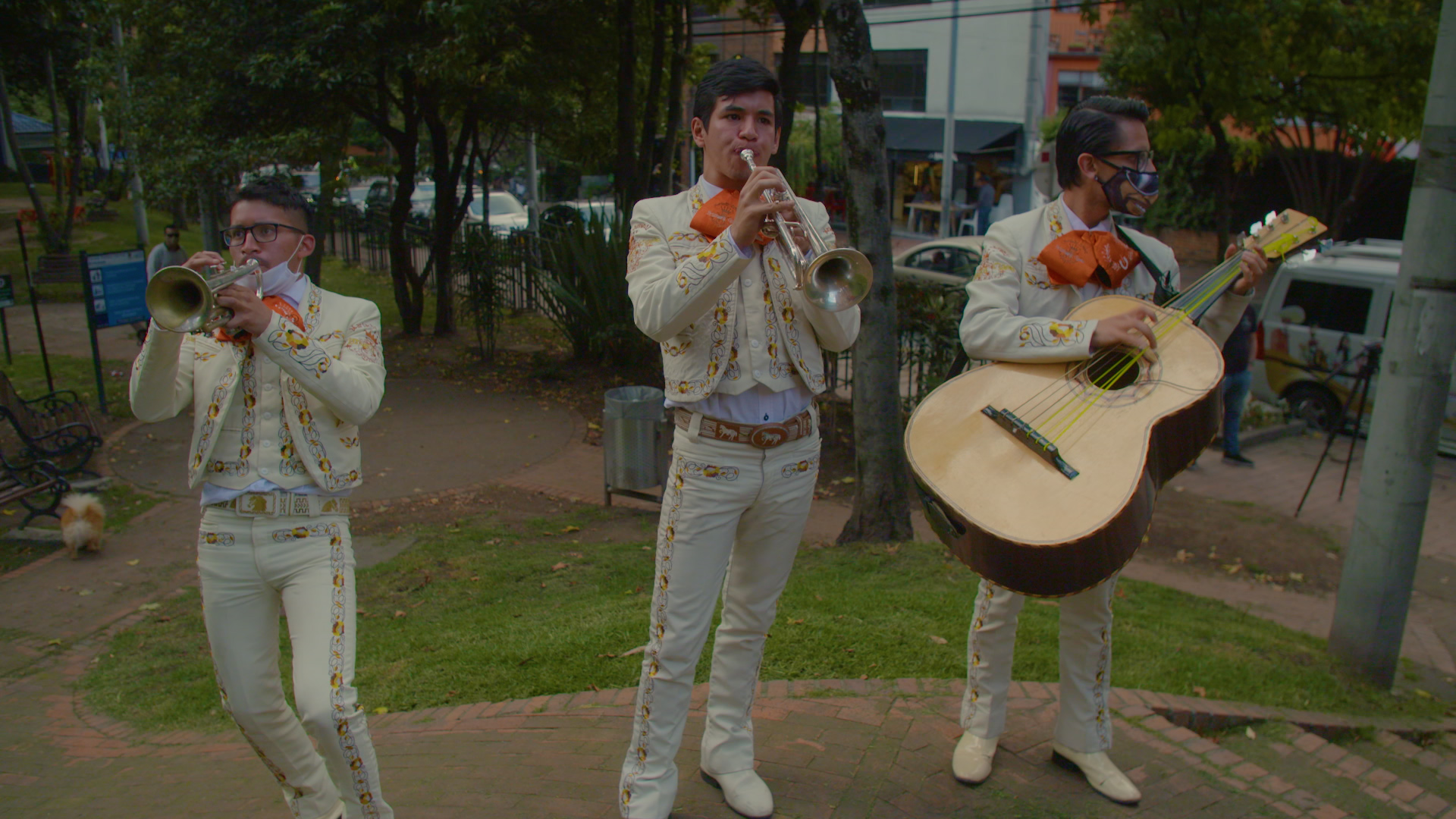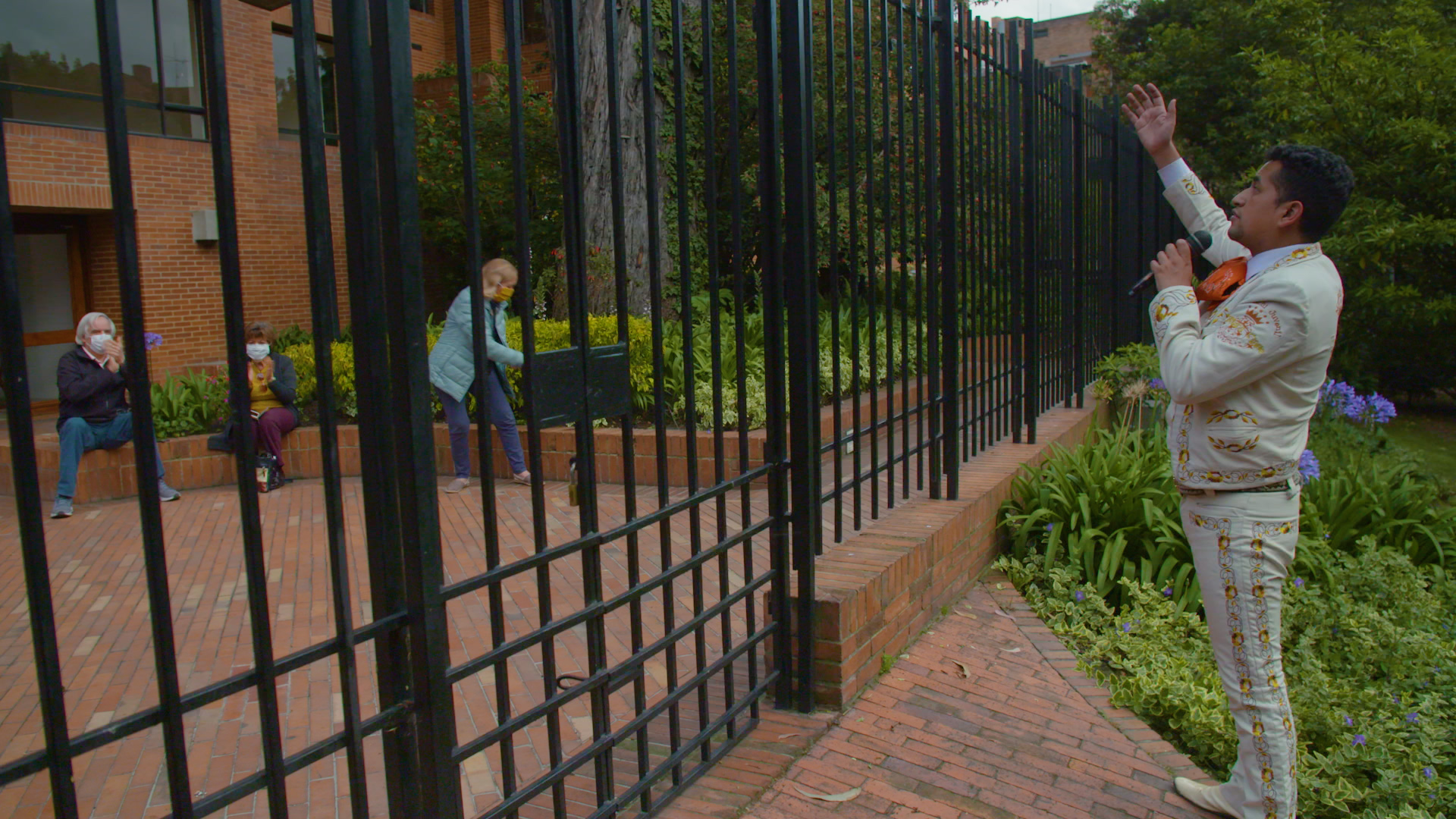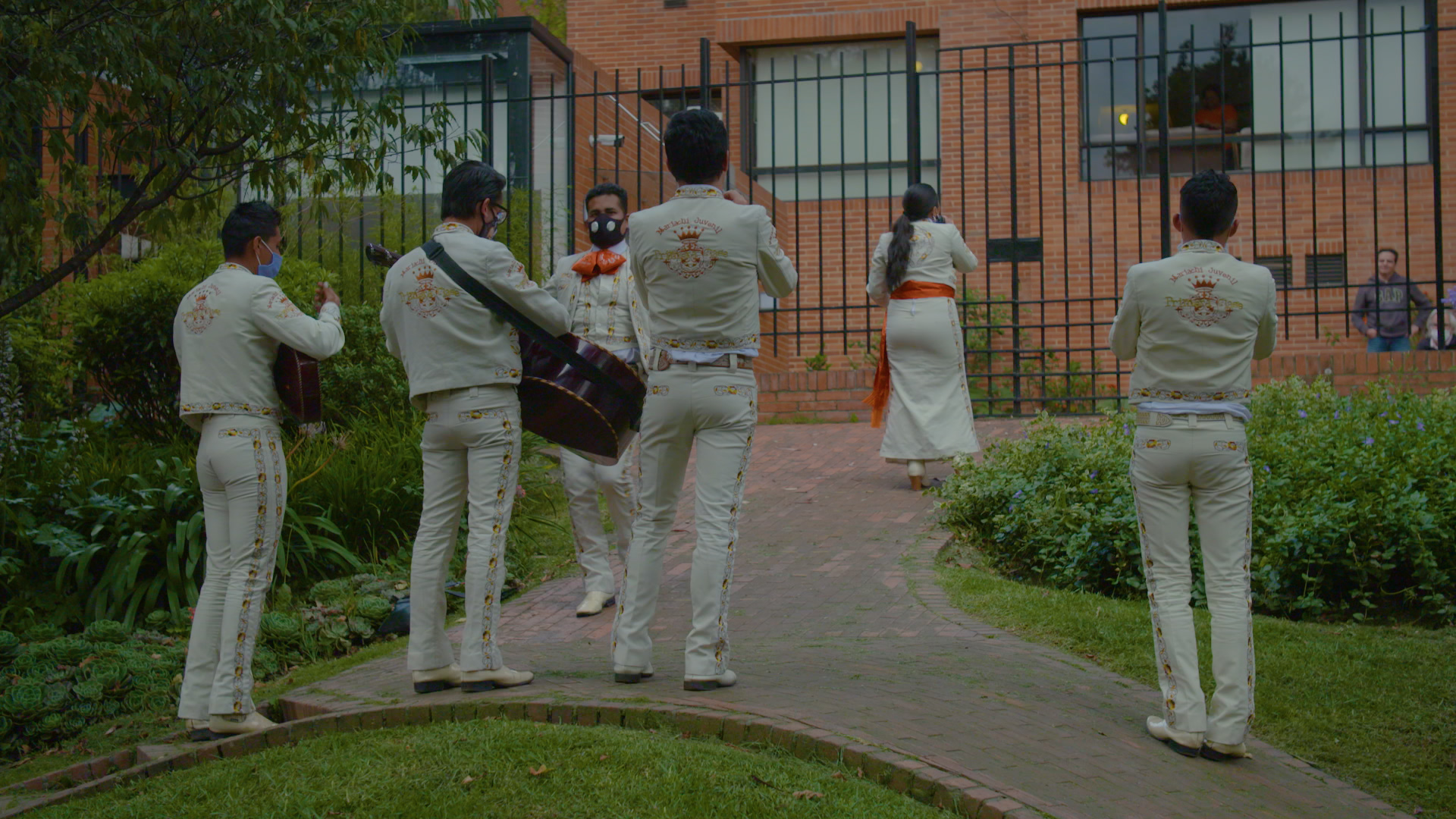
Several mariachi bands broke quarantine in the capital city Bogota and took their music to the streets after a two-month lockdown in Colombia. Michelle Begue/CGTN
Several mariachi bands broke quarantine in the capital city Bogota and took their music to the streets after a two-month lockdown in Colombia. Michelle Begue/CGTN
Luisa Fernanda Sarmiento has had a mundane routine since the end of March when Colombia began lockdown measures to curb the spread of COVID-19. So when a mariachi band came playing through her neighborhood, she was more than surprised.
"They brought joy to our day," she said.
After a two-month lockdown in Colombia, several mariachi bands decided to break quarantine in the capital city and take their music to the streets again. Trombone musician and member of a six-man mariachi band Daniel Felipe Lopez, said, "As artists, our day-to-day (income) comes from being on the streets and bringing joy to people in their homes.”
Serenades to celebrate special occasions are a staple in Colombian culture and are often done through mariachis, trios or the Colombian musicians called vallenateros.

While the government says it is giving aid to people who can't work because of the restrictions, these artists have been left out. Michelle Begue/CGTN
While the government says it is giving aid to people who can't work because of the restrictions, these artists have been left out. Michelle Begue/CGTN
During the pandemic, governments across the globe issued temporary bans on social gatherings. Colombia was no exception, and that decision put thousands of musicians out of work. According to Bogota's office of Culture, Recreation and Sports, on any given day, one could find up to 2,000 musicians roaming the streets of Bogota's La Playa neighborhood, which is historically known as the place where you could pick a group to serenade someone last minute.
They are part of the millions of informal workers in Colombia, who make a living from day-to-day contact with clients.
While the government says it is giving aid to people who can't work because of the restrictions, these artists say they have been left out.
"The union of artists is one of the last to be considered by the government. I don't know if they have even really considered us, and the most surprising thing has been our ability to adapt ourselves because we can't wait around to starve to death," Lopez said.

Though lockdown measures have not been lifted for the majority of the population, local authorities have reportedly not stopped mariachi bands from taking to the streets. Michelle Begue/CGTN
Though lockdown measures have not been lifted for the majority of the population, local authorities have reportedly not stopped mariachi bands from taking to the streets. Michelle Begue/CGTN
In Colombia, lockdown measures have not been lifted for the majority of the population, but for the past two weeks mariachi bands have independently gone out to play in different neighborhoods across the city, which local authorities have reportedly not stopped.
While self-isolation measures keep people apart, Lopez said he has felt a surprising degree of connection with citizens. The players say they have received food and help from spectators and that on one of the two days they went out, they collected around 100 U.S. dollars in tips.
"People have really supported us from the streets from their apartments and have done so fondly, and that has been surprising. Although people are in isolation because of the pandemic, they keep supporting us and showing that they are with us," Lopez said.